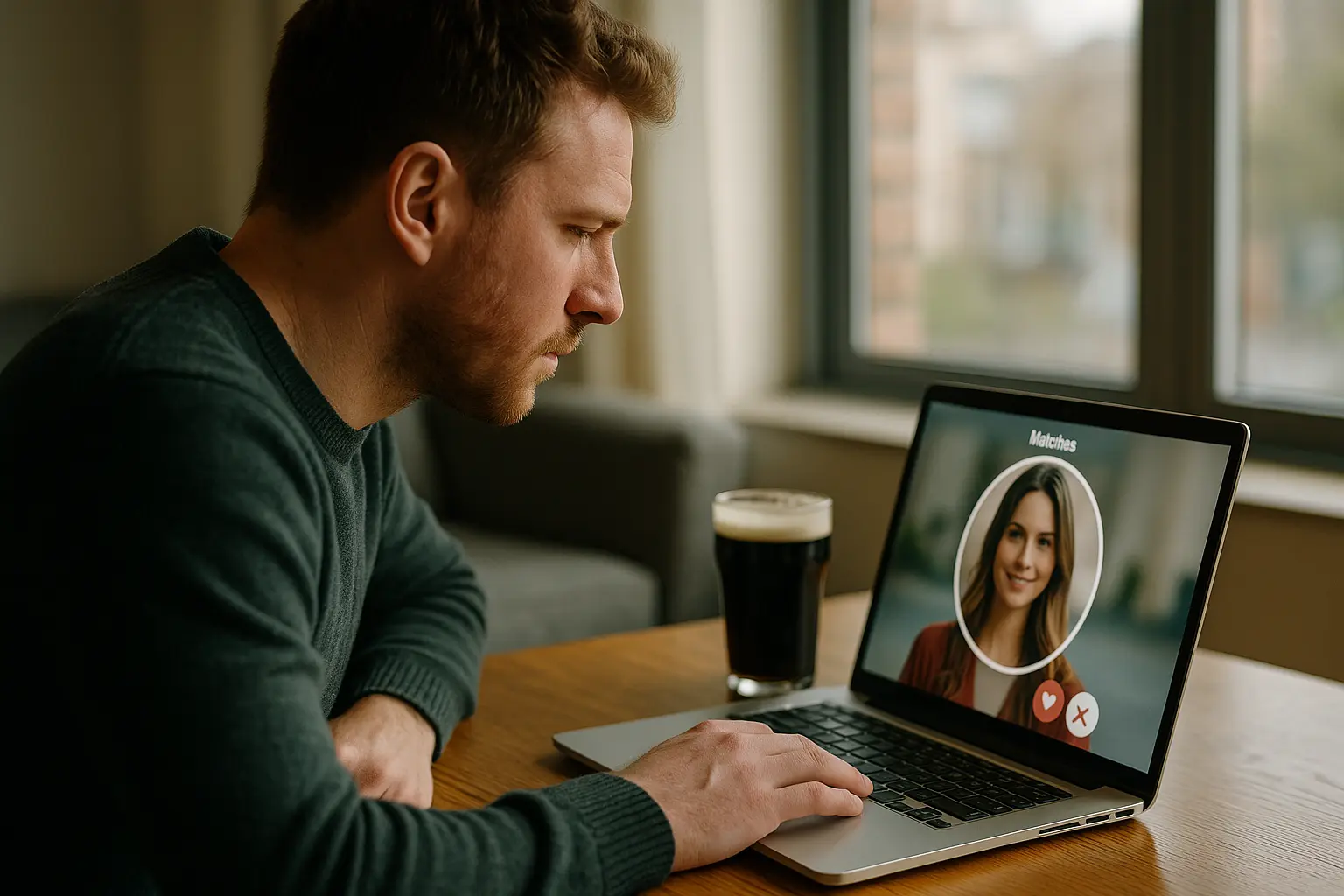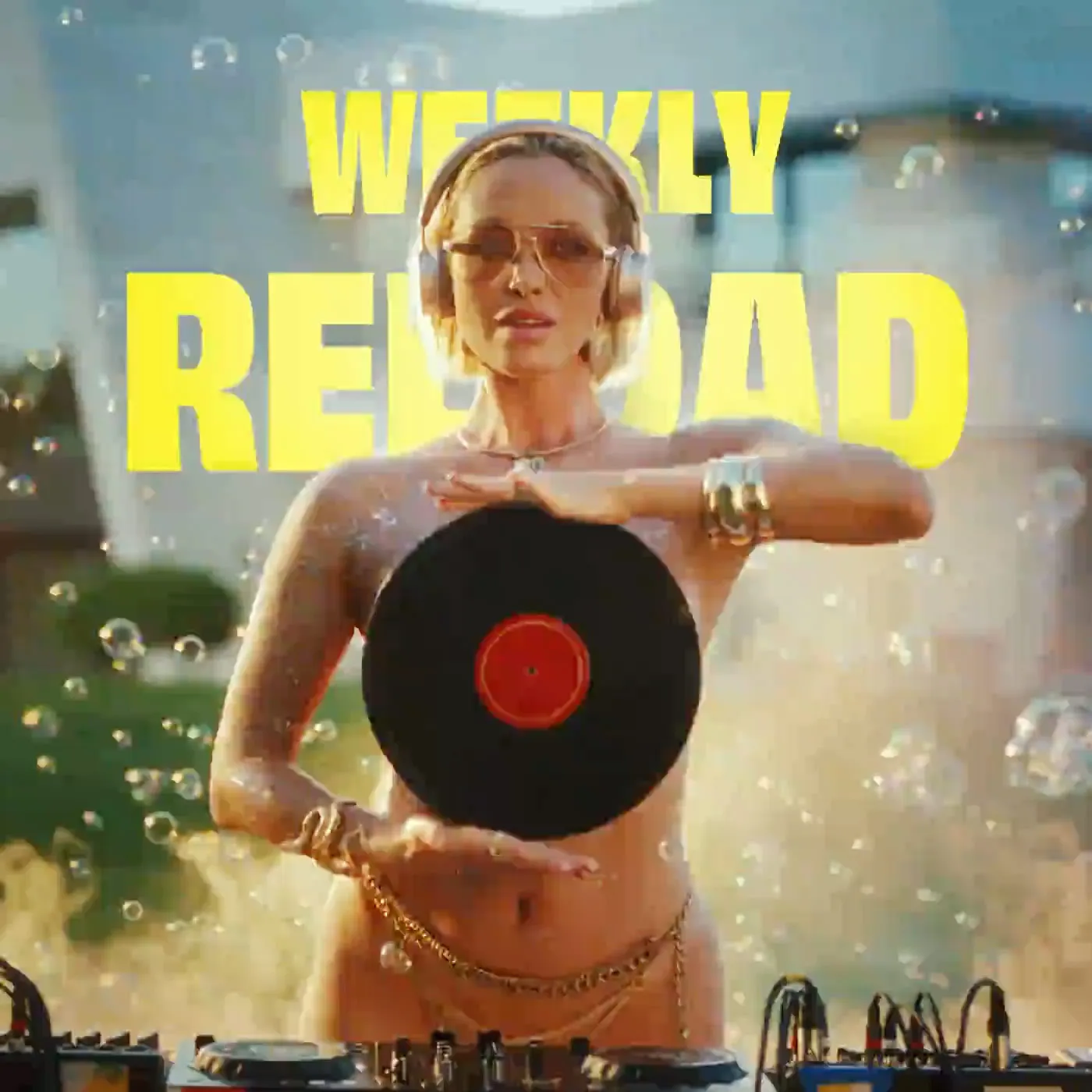
From swipe fatigue and calls for more meaningful matches to niche communities centred on sport, gigs, wellness, the outdoors and, for some men, online casinos, the picture is broader - and more complicated - than a stack of selfies and a clever bio might suggest. Irish usage of the internet remains among the highest in the EU, especially for younger adults, which helps explain why mobile dating is so visible in everyday life.
If you track the app charts and revenue tables, the familiar names still dominate the Irish market. Sensor Tower and Similarweb snapshots through 2025 show Tinder, Bumble and Hinge leading mainstream discovery, with Grindr highly active in LGBTQ+ dating, and youth-leaning social discovery apps like Yubo edging in at the margins. The pecking order moves month to month, but the broad shape holds: mass-market swipes at the top, relationship-oriented and identity-specific communities layering underneath.
Culturally, Ireland still celebrates offline chemistry. The Lisdoonvarna Matchmaking Festival - a month-long September ritual overseen by third-generation matchmaker Willie Daly - continues to draw thousands and keeps the idea of curated introductions alive in an age of algorithmic pairing. Daly’s refrain, “Trust is a very important factor in a lasting relationship,” could double as design guidance for dating platforms battling user cynicism.
What Irish singles are actually talking about
The “circle of interests” that travels from bios to first dates is mostly predictable - sport (GAA and football), music festivals, hiking and sea-swimming, food and coffee culture - but two currents feel especially Irish right now. First, a desire to rebalance effort away from endless swiping and toward intentional meet-ups. Irish Times features throughout 2025 chronicle “swipe fatigue” and a modest return to in-person serendipity, often assisted by AI for screening but anchored in real-world pace. Second, a frank conversation about the broader pressures that sit behind dating - housing costs, shifting timelines for commitment and family, and how tech can help or hinder that reality.
Public figures frequently talk around relationships even when they’re not talking about dating per se. Former Taoiseach Leo Varadkar’s defence of the phrase “durable relationships” during last year’s constitutional debate captured a national instinct to recognise families and partnerships beyond old definitions. In a different register, Ireland’s literary giants still lend language to the moment: Oscar Wilde’s quip about first loves and “last romance,” and W.B. Yeats’s line that “There are no strangers here; only friends you haven’t yet met,” remain fixtures in Irish media every February - and in more than a few profiles.
Where the apps stand now
Tinder remains Ireland’s volume engine for fast discovery; Bumble’s pitch on “women message first” still resonates with daters looking for a bit of friction that filters; Hinge has consolidated its “designed to be deleted” niche among 25–40s who’ll tolerate prompts if the payoff is conversation. Grindr continues to act as essential infrastructure for LGBTQ+ men; Plenty of Fish and legacy sites persist as steady, less-flashy alternatives. None of this is revolutionary - and that’s the point. The Irish market in 2025 values reliability and a credible route to meeting offline, not constant novelty for its own sake.
The bigger novelty sits at the edge where dating intersects with other passions. For Irish men in particular, one of those interests is online gambling - a category in flux. The Gambling Regulatory Authority of Ireland (GRAI) formally went operational in March and has begun releasing licensing guidance as the market shifts toward a stricter, local framework. Studies cited by media and academics highlight both growth in online play and sharper scrutiny of bonus-driven behaviour, especially among men under 40. This context matters because dating products courting male attention are suddenly competing with, and sometimes borrowing mechanics from, iGaming.
A brief look at interests that travel from bios to dates
Music and nightlife still grease the social wheels - from a small venue in Wexford to an arena in Dublin - while outdoorsy notes (Howth cliff path, the Reeks, a cold-water dip) act as first-date templates that avoid the pressure of dinner. Work-life questions - “rent or buy?”, “commute or co-work?” - show up early in chats, reflecting material realities that shape relationship timelines. Irish comics have mined the space for humour, and national features have grown more candid about late-30s dating, co-parenting and post-pandemic social skills.

Onlyspins casino promotion banner
A speculative launch: a dating-casino hybrid, designed for regulation
Given the overlap in male interests, it’s not hard to imagine a new Irish-facing platform that fuses dating mechanics with tightly regulated, low-risk gaming moments - call it a “social casino with courtship.” In this concept, you don’t gamble to match. Instead, lightweight, non-wager mini-games serve as icebreakers before anyone moves to chat or a coffee. If a real-money layer exists at all, it sits in a clearly ring-fenced section with default deposit caps, omnipresent spend/time trackers and GRAI-style safeguards, explicitly separated from the dating funnel. In practice, that could look like:
- Profiles that unlock cooperative challenges (think trivia about Irish culture or map-based scavenger mini-quests around gigs and cafés) to prompt conversation without cash.
- Optional, adult-only arcade lobbies with strict onboarding, ID checks and transparent odds; no bonuses in the social feed; no gamified pressure bleeding into dating.
- Real-world tie-ins that reward offline activity - e.g., discounts for attending live music or sport together — not higher wagering.
As a simple example: while many Irish people are still searching for the right dating ecosystem, platforms like Onlyspins have already launched, offering virtual companions and live chat with operators - all while gambling for real money.
This isn’t a sales pitch so much as a design test: can you safely borrow “game night” energy to lower awkwardness without importing the volatility that public-health researchers and the incoming regulator are trying to contain? Ireland’s regulatory direction suggests the only viable answer is one that treats dating and gambling as separate lanes with visible guardrails.
The takeaway for Irish readers
Ireland now has two dating stories running at once. One is timeless - music, humour, friends-of-friends, and the stubborn power of a good conversation in a good pub, captured each year at Lisdoonvarna. The other is data-driven - app rankings, prompts, AI filters, and emerging hybrids competing for the same slice of attention. As the country leans into a new era of gambling oversight and continues to debate what “durable relationships” mean in modern Ireland, the healthiest dating products will be the ones that shorten the distance between chat and coffee, celebrate local culture, and resist the temptation to turn romance into a high-variance game.
Selected sources: CSO on internet use; Irish Times reporting on app fatigue; Sensor Tower and Similarweb on app performance; GRAI releases and legal briefings on the new regime; Irish market research on iGaming participation and bonus effects; Lisdoonvarna festival materials; Wilde/Yeats quotations as commonly anthologised in Irish media.
